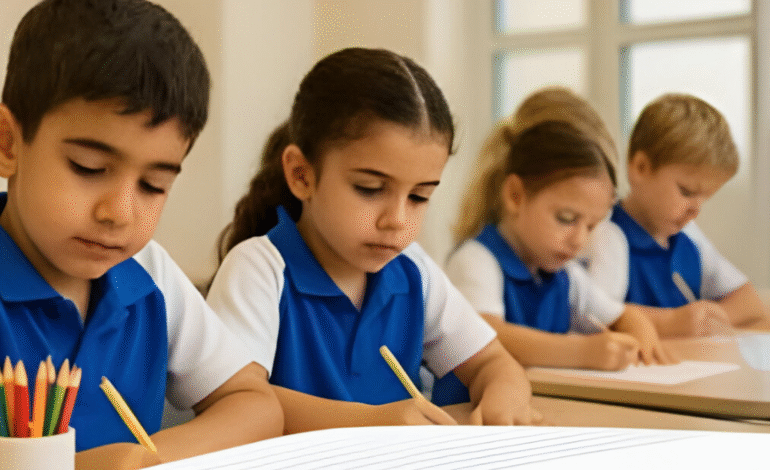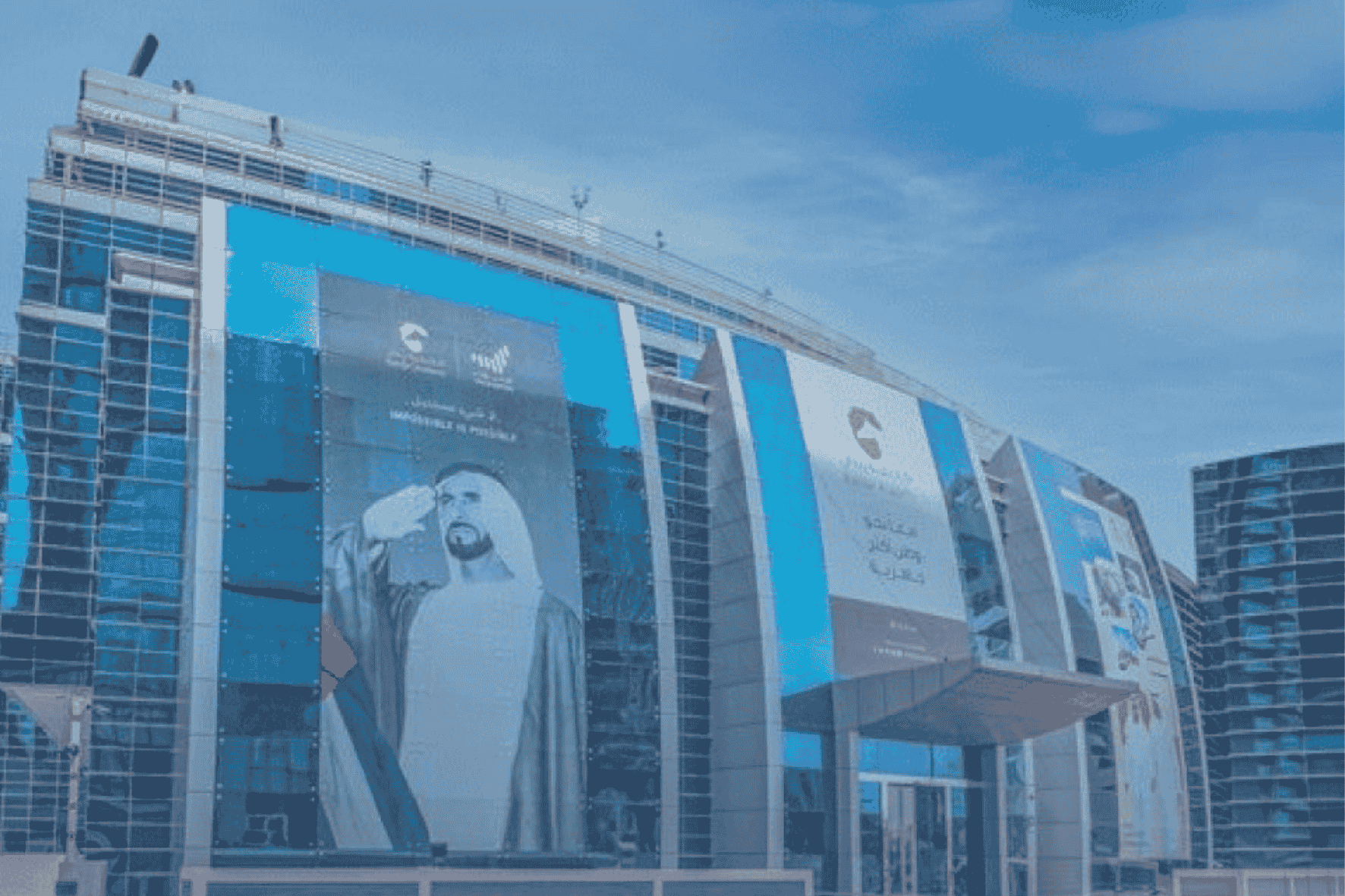UAE Makes Arabic, Islamic, Social Studies Mandatory in Private Kindergartens

The Ministry of Education in the United Arab Emirates has approved new mandatory guidelines requiring private schools across the country to teach Arabic language, Islamic Studies, and Social Studies in kindergarten classes. This educational reform reflects the UAE’s commitment to nurturing national identity and cultural pride from the earliest stages of childhood.
By ensuring that young learners in private institutions receive instruction in these vital subjects, the UAE aims to build a future generation that is rooted in its language, history, and moral values. The Ministry’s decision underscores the importance of consistency in education across both public and private sectors, helping to create a unified learning environment that aligns with national priorities.
Building National Identity Through Early Childhood Education
The inclusion of Arabic, Islamic Studies, and Social Studies in kindergarten classrooms highlights the UAE’s dedication to strengthening national identity among children. Arabic language instruction ensures that students develop a connection to the UAE’s linguistic heritage. Islamic Studies will help Muslim students understand essential moral principles, while Social Studies will introduce all children to the nation’s culture, geography, and history.
This approach seeks to instill pride in Emirati values, encourage social responsibility, and foster respect for the diverse communities that make up the UAE. The Ministry of Education believes that starting this process in kindergarten will provide a strong foundation for lifelong learning and citizenship.
Scope of the New Educational Guidelines
The Ministry’s mandate applies to all private schools in the UAE, regardless of the curriculum they follow. Whether schools operate under British, American, Indian, IB, or other international systems, they must incorporate these subjects into their kindergarten programs.
The guidelines aim to create educational equity so that all students, whether Emirati nationals or expatriates, receive consistent exposure to the UAE’s core cultural and moral values. The Ministry has stated that compliance with these guidelines will be monitored to ensure effective implementation across the private education sector.
Curriculum Structure and Content
The Ministry of Education has outlined clear expectations for the curriculum content while giving schools flexibility to integrate these subjects creatively.
Arabic Language instruction in kindergarten will focus on developing basic communication skills, including listening, speaking, and early literacy. Lessons will incorporate songs, stories, and interactive activities designed to engage young learners and help them build confidence in using Arabic.
Islamic Studies will introduce Muslim students to key concepts of faith and ethics, emphasizing values such as honesty, kindness, and respect for others. Instruction will be age-appropriate and focused on character building.
Social Studies will cover fundamental knowledge about the UAE’s history, symbols, national celebrations, and important figures. The subject will also promote understanding of family, community, and civic responsibility.
Supporting Private Schools and Teachers
Recognizing the importance of effective delivery, the Ministry of Education is providing training and resources to help private schools meet these new requirements. Workshops and professional development sessions will equip educators with strategies for teaching these subjects in engaging and age-appropriate ways.
The Ministry is also developing teaching guides, approved learning materials, and assessment tools to assist schools in aligning with national education standards. School leaders are expected to play an active role in integrating these subjects into their curricula and ensuring that teachers are well-prepared.
Inclusive Approach for Diverse Student Communities
While Islamic Studies will be mandatory for Muslim students, private schools are encouraged to offer alternative moral or character education programs for non-Muslim students, ensuring that all children benefit from lessons in ethics and values.
Arabic language instruction will be designed to accommodate children from various linguistic backgrounds, including those from non-Arabic-speaking families. The aim is to make Arabic accessible and meaningful for every learner.
Social Studies lessons will emphasize the UAE’s rich multicultural environment, promoting inclusivity and respect for diversity while celebrating shared values that unite the nation.
The Long-Term Educational Vision
The introduction of mandatory Arabic, Islamic Studies, and Social Studies in kindergartens is part of the UAE’s broader strategy to enhance its education sector and achieve long-term national goals. This initiative supports the UAE Centennial 2071 vision, which seeks to position the country as a global leader in innovation, culture, and knowledge while remaining firmly anchored in its traditions.
By embedding these subjects into early education, the Ministry of Education aims to produce future generations who are academically capable, morally grounded, and deeply connected to their national identity. The reform also reflects the UAE’s ongoing efforts to align educational practices with its values and aspirations for a unified, prosperous society.
Collaboration Between Schools, Families, and Communities
The success of this initiative depends on collaboration between schools, families, and the wider community. The Ministry of Education encourages parents to take an active role in supporting their children’s learning by reinforcing lessons at home and participating in school-based cultural activities.
Community organizations and cultural institutions are invited to partner with schools to enrich the learning experience. Through initiatives such as heritage days, storytelling sessions, and cultural festivals, children will have additional opportunities to engage with the UAE’s traditions in meaningful and enjoyable ways.








6 Comments
[…] The United Arab Emirates (UAE) has achieved a remarkable milestone by ranking as the world’s second-most attractive destination for greenfield foreign direct investment (FDI). This global recognition reinforces the country’s growing economic influence and highlights its emergence as a powerful hub for international businesses and entrepreneurs. […]
[…] The United Arab Emirates is becoming one of the most popular education hubs for international students. Cities like Dubai, Abu Dhabi, and Sharjah are home to top-tier universities offering globally recognized degrees, modern campuses, and vibrant student communities. […]
[…] The United Arab Emirates marked a historic milestone in mixed martial arts (MMA) when Saif Alblooshi clinched the nation’s first-ever gold medal at the IMMAF Youth World Championships in Al Ain. The victory not only spotlighted the UAE’s burgeoning MMA talent but also highlighted the country’s growing influence in the global combat sports arena. Saif’s triumph, achieved in the men’s Youth B (14–15 years) 40 kg category, represents a culmination of rigorous training, steadfast dedication, and the support of a passionate home crowd. […]
[…] Airways, the national carrier of the United Arab Emirates, has officially received its first Airbus A321LR, a long-range version of the popular A321neo […]
[…] The United Arab Emirates is known for building landmarks that inspire the world. From the soaring Burj Khalifa in Dubai to the cultural gems of Abu Dhabi, the nation continues to combine tradition with modern innovation. Now, the UAE has reached a new milestone as it prepares for the next big international stage Expo 2025 Osaka in Japan. […]
[…] The United Arab Emirates and Indonesia share a history of warm diplomatic relations, cultural respect, and expanding trade. This bond was highlighted once again during the celebration of Indonesia’s National Day in Abu Dhabi, hosted by the Indonesian Embassy. The event became more than just a ceremonial gathering it turned into a reflection of how two nations, rich in culture and driven by progress, continue to deepen their ties. […]
Comments are closed.